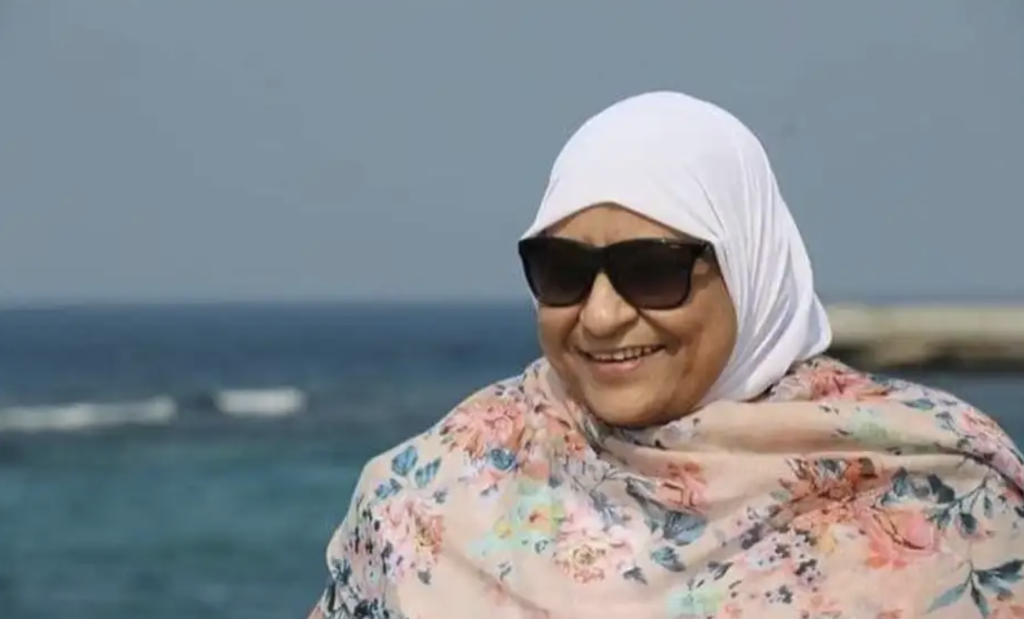We strongly condemn the unprecedented weaponization of Egyptian diplomatic missions as tools of transnational repression against peaceful protesters abroad. A recently leaked recording of Foreign Minister Badr Abdelatty shows him instructing embassy staff to “grab them [protestors], tie them up, drag them inside, and make their lives hell”—a shocking directive that fundamentally undermines the principles of international diplomatic law.
This dangerous guidance has already translated into real-world violence in multiple jurisdictions, marking a serious escalation in Egypt’s campaign of transnational repression:
- The Hague (Netherlands): In multiple incidents in 2025, protesters chained the gates of the Egyptian Embassy in solidarity with Gaza. In response, embassy personnel verbally attacked them, and later national security arrested family members inside Egypt. Following the leak of the Foreign Minister’s video, pro-regime loyalists began showing up outside the embassy to confront, intimidate, and threaten protesters, marking a clear escalation in tactics.
- New York (United States): During a protest outside Egypt’s Permanent Mission to the United Nations (UN), security staff forcibly pulled two U.S. citizens, including one minor, inside the mission premises, beat them with a metal chain, and had them arrested by the New York Police Department. One protester’s charges were eventually dropped; the other’s were reduced.
- London (United Kingdom): Beyond misusing diplomatic premises, Egyptian authorities have relied on pro-government loyalists abroad—often with coordination, logistical support, or incitement from officials—to threaten, intimidate, and physically assault activists. These proxy attacks in public spaces near protests and community hubs have led to arrests and show how Egypt’s transnational repression extends beyond embassy walls into the streets of European capitals.
While Egypt’s diplomatic missions were targeting Egyptians abroad, the country’s security forces were harassing and targeting the family members of exiled Egyptian journalists. At least one family member of an exiled journalist was arrested and subjected to enforced disappearance in retaliation for the journalist’s work in exile. While the family member was later released, these actions are part of a broader pattern of tactics used to target exiled journalists, including arresting their relatives, blocking access to exile-based media, targeting journalists with spyware, and denying consular services and identity documents for those living abroad and their family members, including children.
These acts represent a severe violation of Egypt’s obligations under the Vienna Convention on Diplomatic Relations (1961):
- Article 22(1): “The premises of the mission shall be inviolable.” Inviolability protects embassies from external interference, but does not authorize missions to detain, assault, or torture civilians.
- Article 41(1): “All persons enjoying privileges and immunities have a duty to respect the laws and regulations of the receiving State.” The recent violent acts by Egyptian authorities breach domestic laws in the Netherlands, United States, and UK.
- Article 41(3): “The premises of the mission must not be used in any manner incompatible with the functions of the mission.” Diplomatic missions are for representation and protection, not detention facilities or tools of coercion.
By misusing diplomatic immunity to assault, detain, and intimidate protesters, Egypt is eroding the foundations of international diplomatic law and exploiting legal protections as a cover for repression.
These incidents signify a dangerous transformation in Egypt’s global crackdown on dissent. While Egypt has long engaged in transnational repression—through intimidation and harassment, surveillance, smear campaigns, politically motivated extraditions, and arrests of family members—this represents a new and alarming phase:
- Weaponizing diplomatic missions as operational hubs to directly suppress dissent;
- Moving beyond digital and legal harassment to physical assaults on foreign soil;
- Exploiting diplomatic immunity to avoid accountability.
- State-enabled vigilantism: loyalist groups abroad used to silence critics
- Proxy punishment: punishing exiled activists/journalists by targeting their families back home as hostages
This pattern poses an imminent threat to exiled activists, journalists, and rights defenders and risks normalizing violence within diplomatic spaces if left unchallenged.
We urge urgent and coordinated action to address this unprecedented escalation:
- Independent Investigations by Host Governments
- We urge the relevant authorities in the Netherlands, United States, and United Kingdom to immediately investigate these incidents and demand full accountability from Egypt.
- Accountability Measures
- Host states should consider declaring responsible Egyptian diplomats persona non grata under Article 9 of the Vienna Convention on Diplomatic Relations when missions engage in conduct incompatible with their functions. They should also explore the possibility of initiating legal proceedings under domestic law, particularly in relation to acts of assault, unlawful detention, or other criminal conduct committed by diplomatic personnel, to ensure accountability beyond diplomatic remedies.
- UN & International Oversight
- We call on the UN Special Rapporteurs on Torture and Freedom of Assembly, and the Working Group on Arbitrary Detention to investigate Egypt’s conduct and issue urgent communications on the misuse of diplomatic immunity to commit acts of transnational repression.
- Protection of Protesters and Defenders
-
- We urge host governments to guarantee the safety of peaceful protesters and human rights defenders, ensuring they can exercise their rights free from violence, intimidation, or unlawful detention by diplomatic personnel.
Signatories:
- Egyptian Human Rights Forum (EHRF)
- Egyptian Front for Human Rights
- Law and Democracy Support Foundation (LDSF)
- Vuka! Coalition for Civic Action
- Digital Democracy Now
- REDWORD for Human Rights & Freedom of Expression
- West African Human Rights Defenders’ Network
- HuMENA for Human Rights and Civic Engagement
- Middle East Democracy Center (MEDC)
- CIVICUS
- Sinai Foundation for Human Rights (SFHR)
- El Nadim Center
- Fair Square
- EuroMed Rights
- Cairo Institute for Human Rights Studies (CIHRS)
- EgyptWide for Human Rights
- World Organisation Against Torture (OMCT) within the framework of the Observatory for the Protection of Human Rights Defenders
- International Federation for Human Rights (FIDH) within the framework of the Observatory for the Protection of Human Rights Defenders
- Partenariat pour la Protection Intégrée, PPI (Partnership for Integrated Protection)
- Refugees Platform In Egypt RPE
Photo: Facebook Page of the Egyptian Foreign Ministry

